Iran and Pakistan should work together for regional peace: Kamal Kharazi
Appreciating Pakistan’s neutral stance over Yemen conflict, Seyed Kamal Kharazi, the Head of Strategic Council on Foreign Relations and former foreign minister of Iran stressed Pakistan and Iran should join hands and work together to ensure regional and global peace.
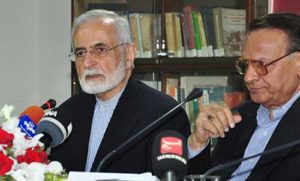 He was addressing the session ‘Emerging Regional and Global Scenario: A Perspective from Iran’ which was organized by Institute of Policy Studies (IPS), Islamabad on March 26, 2018. The session was chaired by Shamshad Ahmad Khan, former foreign secretary of Pakistan. It was attended by a number of former diplomats, former secretaries, academicians, intellectuals, as well as Iranian ambassador to Pakistan H.E Mehdi Honardoost and other officials from the Iranian embassy.
He was addressing the session ‘Emerging Regional and Global Scenario: A Perspective from Iran’ which was organized by Institute of Policy Studies (IPS), Islamabad on March 26, 2018. The session was chaired by Shamshad Ahmad Khan, former foreign secretary of Pakistan. It was attended by a number of former diplomats, former secretaries, academicians, intellectuals, as well as Iranian ambassador to Pakistan H.E Mehdi Honardoost and other officials from the Iranian embassy.
Kharazi was of the view that any cooperation of Iran with India can never be against Pakistan, much the same way no Pakistan alliance with Saudi Arabia can be against Iran. He said that every country strives to serve its own interests but its increasing relations with India were not going to hurt Pakistan in any way.
He said that Pakistan and Iran enjoyed cultural, religious, geographical and historical ties and even their interests were not much dissimilar from each other. It was thus the need of time that these deep-rooted relations be graduated to strong economic ties, which would provide significant impetus to the region’s economic growth. The linking of Gwadar and Chabahar port was termed an important step by the Iranian former foreign secretary that should be taken in this regard.
Speaking about some of the conflicts that existed between the Iran and Pakistan, the speaker said that none of those issues were very serious in nature and hence they should not be reflected on the policies of either country for each other.
Shedding light on the developing situation in Afghanistan, Kharazi termed the involvement of Taliban in Afghanistan government necessary, stating that any such development will invalidate any legitimate reasoning for United States’ stay in Afghanistan. The speaker stressed that Iran and Pakistan should join hand and work together in this regard as both the countries have suffered extensively over the matter. The US on the other hand, he viewed, would want to extend its stay in Afghanistan as much as possible as this will help it keeping an eye on China, Russia, Iran and Pakistan.
Talking about the status of the nuclear deal between US and Iran following Trump threats, Dr Kharazi said that though Iran was still sticking to the agreement, US was trying to run away from it and had already started violating the deal in the process. He said that the options for Iran were still open in case of US violations; European countries though, in his opinion, were still keen on keeping the deal intact.
On the matter of Daa’ish, the speaker said that the organization was formed to counter the Iranian revolution but it failed to serve the purpose. He said that Daa’ish had recruited 80 thousand personnel which included 50 thousand fighters from different countries. If Daa’ish had been successful in Iran and Syria, then it would have split the countries into parts, to the benefit of Israel’s designs for the region.
The speaker also explained the reasons behind the Iranian support for Bashar al-Assad’s government stating that according to their reports, it was Israel’s plan to break Syria into two by making use of Daa’ish. He believed that such a situation will not be in the good interest of Islamic world, the reason why Iran keep raising the question why Saudi Arabia and other powers were supporting US over the matter? Since any such occurrence will also have an impact on Iran, it was only natural for Iran to favor Assad over the matter, Kharazi said. The matter for Iran was not about the Shia-Sunni divide as the country was already working with Sunnis in Afghanistan, Pakistan and Palestine, he added.
Presiding over the session, the former foreign secretary of Pakistan Shamshad Ahmad Khan opined that Pakistan, Turkey, Iran and Saudi Arabia should join hands to provide the much-needed leadership for the Muslim world. He said that Pakistan’s participation in the Saudi Arabia-led military alliance was not against Iran; instead the country’s involvement might help in making sure that no offensive measure was being taken by the alliance against Iran.
Throwing the light on the state of Muslim countries, he said that the Muslim world possessed about 80 per cent of all energy resources and about 60 per cent of all natural resources of the world, sadly though the combined GDP of Muslim countries constituted to only five per cent of the world’s total GDP.
Building on his argument, the speaker said that the United Nations had failed to stamp its authority by not playing any role to improve the situation in Kashmir and Palestine, whereas Afghanistan and Syria were also burning but UN was doing nothing in this regard as well. He said that the Muslim world needed the alliance of Turkey, Iran, Saudi Arabia and Pakistan in such a situation if it was to answer the stern challenges faced ahead.
Khalid Rahman, executive president and director-general of IPS also spoke on the occasion.


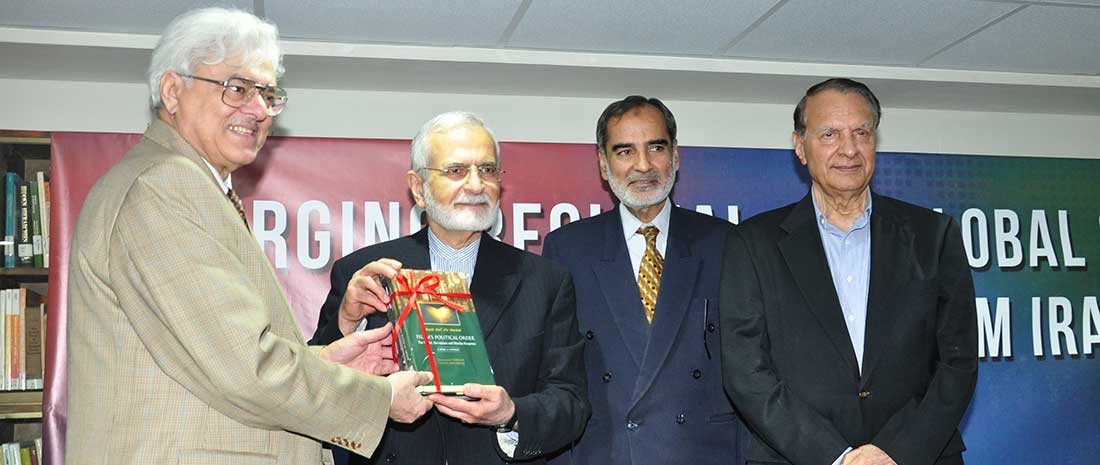
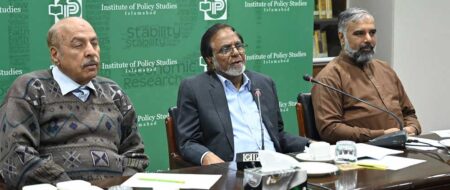
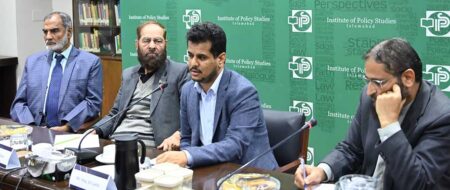
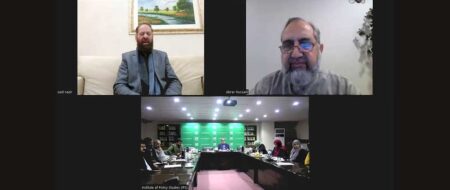
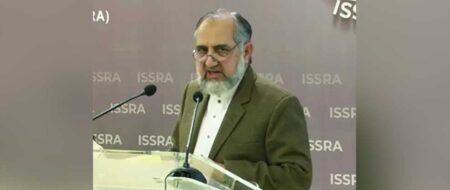
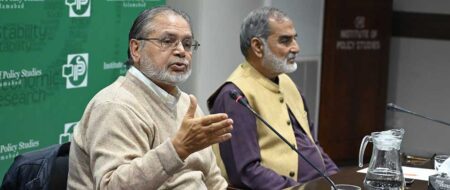
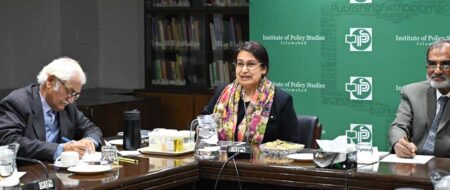
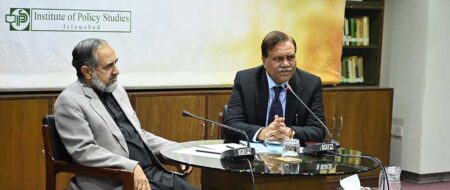
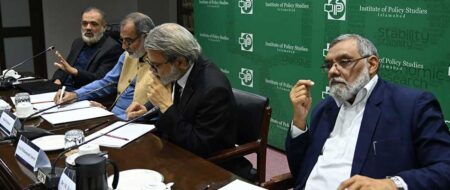
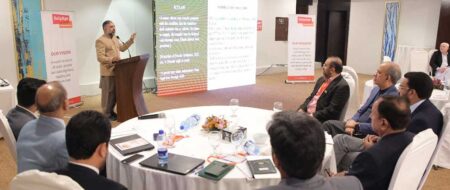

Comment (1)
It was brief and very positive sign between Pakistan and Iran relations regarding in the current scenario. Pakistan, Iran, Turkey and Saudi Arabia work together and should lead the Muslim World. All the Best and warm wishes to Institute of Policy Studies.
Comments are closed.